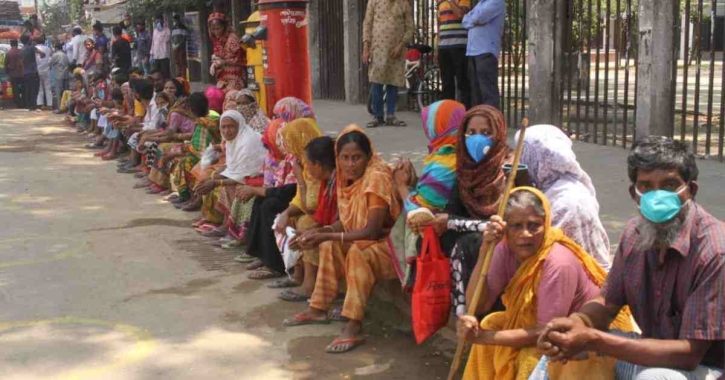Marginal people spend 70% of their monthly income on food: CAB
BI Report || BusinessInsider

File photo
The Consumer Association of Bangladesh (CAB) has claimed that lower income people of the country are spending 70 percent of their monthly income to buy foodstuff.
According to the latest Bangladesh Bureau of Statistics (BBS) household income-expenditure survey, the average monthly income per family in the country is Tk 15,945. About 48 percent of that income is being spent on buying foodstuff. And, the poor and marginalised families use up to 70 percent of their monthly gross income on food, says Chattogram CAB.
On the occasion of celebrating World Food Day on Sunday, Food Rights Bangladesh-Chattogram District and Consumers Association of Bangladesh (CAB), Chattogram and CAB Jubo Group Chattogram Metropolitan organised a public gathering and formed a human chain on the circuit house premises of the city.
Because of high food expenses, the marginalised and poor people, especially the women and children, are at risk in Bangladesh like many other countries, the speakers said.
Many of the middle class, including the wealthy, are facing severe problems in leading a normal life. As a result, Bangladesh has also contributed to the current global poverty and inequality, they added.
Analysing the market data, it has been shown that inflation has got high enough and it may worsen in the future. In recent times, not only in urban areas, but also in the rural part of the country, the cost of living --- such as fuel oil, cooking stove gas, life-saving drugs, electricity, and public transport fares--- have increased significantly.
In the programme, CAB demanded that the government incorporate the new poor in its social protection programmes and increase allocation of financial and food aid to them. This is how the marginalised and the poor can survive in an adverse economic situation. They also demanded specific initiatives to reduce the prices of the daily essentials including rice and flour.
The speakers demanded trimming of import and customs duties on food products, ensuring strict market supervision at both wholesale and retail levels to maintain price stability and taking urgent initiatives to form a ‘Price Commission’ to control the market prices.
























